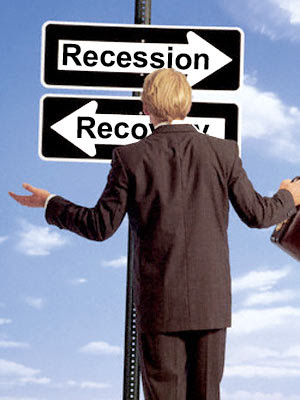I’ve been thinking about some stuff I wanted to share with you, I’m worried you see, a little concerned you could say, about our state of mind when it comes to being a retailer and a customer.
Everyone I speak to is trying really hard to get their sales up but at what cost? Is cheapening their services the right way forward?
If you've priced your products correctly in the first place then how can you reduce them even as an enticement?
A friend of mine in the catering industry was telling me that she has reduced some of her prices, created some special offers, however, this is the bit that frightens me, in order to reduce the price she has had to reduce her standards/ quality because it would be impossible to cheapen her prices otherwise, the pound is rubbish, as we all know the cost of raw materials has gone up, holiday entitlement has been increased in turn increasing the cost of labour, so she has no option. Link to read more
 The concern with this is that standards will drop, we’ll become a nation of mediocrity not specialists, everything will be done on the cheap, no-one will value truly skilled people.
The concern with this is that standards will drop, we’ll become a nation of mediocrity not specialists, everything will be done on the cheap, no-one will value truly skilled people.I read a blog recently suggesting that readers/brides take advantage of offers from a variety of Beauty professionals, one offer was for a full manicure with a free pedicure, another offered £10.00 off their spray tan price and another offered free back massage with each facial (Both of which were done by an un qualified apprentice), in other words the readers should go to each Beauty Therapist taking advantage of their special offers. I’m not a beauty therapist but I do understand these offers are to entice us, the consumer to use their other services at full price and so we should, because if we don’t, not one of these independently owned businesses will survive if all we buy from them is a non-profit making offer!
Picture Source Link
 My father was of the old school of flower buying and selling, he bought our flowers from the then buoyant wholesale and growers markets at Smithfield in Manchester, he used to bid and barter, negotiate and generally drive a hard bargain.
My father was of the old school of flower buying and selling, he bought our flowers from the then buoyant wholesale and growers markets at Smithfield in Manchester, he used to bid and barter, negotiate and generally drive a hard bargain. 
However,one of the most important lessons he taught me was always pay what you know to be a fair price for a beautiful flower, and that’s the skill bit, everyone can try to get things cheaper, but if you drive too hard a bargain the grower won’t send to Manchester, he’ll send to Covent Garden instead and we’ll be left with lots of second rate cheap stuff like the Supermarkets sell.
Another one of his little gems was this “It’s much better to be a really good customer of a few suppliers than a poor customer of many” . Who gets the best colours, quality, first delivery, best designer? the answer is simple, the really good customer of course!
I never ever understand the thinking behind reduced old flowers, they are dead, why buy them, but people do. However with any fresh product there can be gluts, particularly in the spring, if the weather gets warm early, the tulips and daffodils shoot up, the price is cheap to move the flowers along so the consumer can take advantage of “Mother Nature” no harm done, these natural offers are the ones we’ve all been taking advantage of for 100’s years and long may it continue.
So the point is this, when is a bargain really a bargain?
Do we as consumers just want things to be as cheap as possible irrelevant of the actual cost to our services, or do we value these skilled professionals, have “things” less often but done properly? I know which I’ll be going for, and I will, when I can, continue to support those services who do the job properly with a qualified, valued and trained team!
Related Site
-Gretna Green Weddings
-How Becoming a Wedding Planner
Related Videos :below I show related videos and not so related to this article.
Expand the description and view the text of the steps for this how-to video.
Check out Howcast for other do-it-yourself videos from Jordana_Giorgio and more videos in the Buying a Home category.
You can contribute too! Create your own DIY guide at http://www.howcast.com/videos/new or produce your own Howcast spots with the Howcast Filmmakers Program at http://www.howcast.com/filmmakers/apply.
You can get a real steal at a house foreclosure sale--or you can overpay for a money pit. Here's how to avoid the latter.
To complete this How-To you will need:
Knowledge of how auctions work
Low expectations
Time to research and inspect properties
Cash for a 5% deposit
Pre-approved financing
An expensive outfit
A copy of the auction rules
Step 1: Know your auctions
Know your auctions. At a sheriff's, trustee's, or courthouse auction, you can't inspect the property in advance; no information is provided on the property; you'll need to pay much or all of your bid on the spot, in cash or a cashier's check; and it will be your problem to evict the tenants! But this is where you'll find the deep discounts.
Step 2: Play it safe
If you want to play it safe, go to an auction house sale. The bank already owns these properties (so you won't have to kick anyone out), and you're usually allowed to inspect the premises beforehand. But this comfort level comes at a price—you'll typically pay 90% to 95% of the market value.
Step 3: Expect the worst
Expect the worst with any house you buy at auction. If a homeowner couldn't afford his mortgage, it's reasonable to expect he wasn't keeping up with maintenance and repairs, either.
Tip: Be aware that homeowners who are forced out of their houses sometimes express their bitterness by taking with them anything that isn't nailed down, leading to huge (and unanticipated) repair bills for the new owner.
Step 4: Do a drive-through
Drive through the neighborhood of any foreclosed home you're considering. If the area is teeming with foreclosure signs, prices are likely to fall even farther. It also may be the sign of an area on the decline.
Step 5: Check what you can
Check out as much as you can about the house in advance of the auction. If you're allowed to do an inspection, take a contractor with you; he'll be able to give you a ballpark number on the repairs you're looking at. Check if there are any liens on the home. Review the title search. Know what other homes in the area are worth.
Step 6: Have cash
Be prepared to pay on the spot a 5% deposit, in cash or a cashier's check, if you have the winning bid at an auction house sale. At a sheriff's sale, you might have to pony up the full amount.
Tip: Have realistic expectations. Banks aren't in the business of giving away homes, so if a price sounds too good to be true, it probably is.
Step 7: Come with pre-approved financing
Come with pre-approved financing, even if the auction doesn't demand it. If you make the winning bid and then find you can't get financing, you'll still be legally responsible for paying 25% of your bid!
Step 8: Look affluent
Attend the auction in your most expensive clothes. It will trick other buyers into thinking there's no point in getting into a bidding war with you.
Step 9: Set a limit
Set a limit as to what you'll bid so you don't end up overpaying for a house simply because you got caught up in the heat of the moment.
Step 10: Avoid nasty surprises
Know the rules of your auction. If you win a bid, do you have time to change your mind, or will you have to pay a penalty if you back out? Is there a "reserve amount"—an amount below which the owner does not have to sell, even if you won the bidding? Is there a "buyer premium"—an additional 5% to 10% you have to pay the auction house?
Step 11: Jump right in
Jump right in when the bidding starts—assuming you like the house. Homes sold at the beginning of an auction typically go for less money than those sold at the end.
Thanks for watching How To Score a Bargain At a Foreclosure Auction! If you enjoyed this video subscribe to the Howcast YouTube channel! http://www.youtube.com/subscription_center?add_user=howcast
Jim (David Conrad) and Eli (Jamie Kennedy) find themselves connected in an unsolved mystery when both of their bosses are haunted by ghostly spirits. Jims mentor, the Chief of Rockland Memorial Teaching Hospital (Mark Moses), and Elis boss, the Rockland University President (Bruce Davison), share secrets involving a missing young woman whos come back into their lives with unfinished business. And that unfinished business is vital enough to command the attention of the Shadows -- those mysterious spirit beings Aiden's been warning Melinda about...













0 comments:
Post a Comment